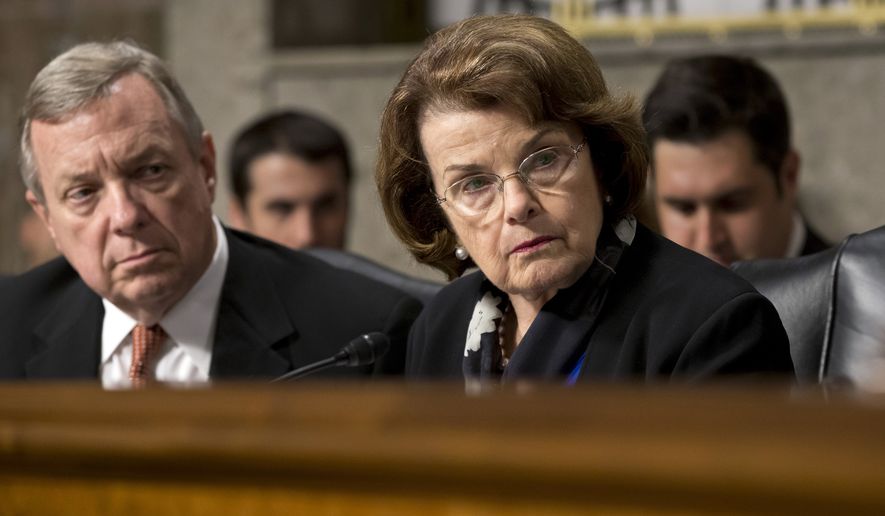Democratic senators plan to introduce Tuesday a constitutional amendment to abolish the Electoral College, a revamping of the 230-year-old U.S. electoral system increasingly demanded by the party’s presidential candidates.
According to an NBC News report Monday, the sponsors will be Sens. Brian Schatz of Hawaii, Richard J. Durbin of Illinois and Dianne Feinstein of California.
The amendment has virtually no chance of getting the required two-thirds of both Congressional chambers and then ratification by three-fourths of the states, and certainly not in time to affect the 2020 contest.
Still, one of the senators signed onto the proposal, NBC reports, is Sen. Kirsten Gillibrand, New York Democrat and a 2020 presidential contender.
Those among her rivals in the crowded Democratic-primary field who have directly called for abolishing the Electoral College or hinted at willingness to consider the idea include Sens. Elizabeth Warren of Massachusetts, Kamala Harris of California, and Bernie Sanders of Vermont; former Rep. Beto O’Rourke of Texas; former HUD Secretary Julian Castro; and Pete Buttigieg, the mayor of South Bend, Indiana.
“We should abolish the Electoral College,” Mr. Castro said at a candidate forum Monday. “It doesn’t reflect the will of the people of the country.”
Under the Electoral College, every state gets a number of votes equal to its number of senators and representatives, and the president is formally chosen by those “electors,” though they are always pledged and often legally required to vote for the candidate who wins the state (or in two states, the winner in a congressional district).
The system almost always chooses as the winner the same person who received the most votes for president nationwide, though twice within the past generation, it has not. Democrats were on the losing end both times — George W. Bush defeating Al Gore in 2000 and Donald Trump beating Hillary Clinton in 2016.
That partisan fact is both part of the reason the issue has become a popular one with the Democrats’ liberal base and why the amendment has very little prospect of success.
Without significant Republican support — more than 50 House members and over 20 senators — even a unanimous Democratic caucus can’t pass a constitutional amendment. And the odds are, if anything, even longer on getting three-fourths of states to ratify as two effects of the Electoral College provide advantages to a significant number of states: the mass of smaller states gets a slightly greater weight, and the election action becomes isolated into states with smaller gaps between the two parties (swing states).
In making her cases for abolishing the Electoral College to a town-hall meeting in Jackson, Mississippi, last month Ms. Warren told her audience that presidential candidates don’t campaign in their conservative state or in liberal California or Massachusetts because those outcomes are foregone conclusions.
“Every vote counts” and candidates should try to appeal to everyone equally, whether in Mississippi or California, she told her audience.
• Victor Morton can be reached at vmorton@washingtontimes.com.




Please read our comment policy before commenting.